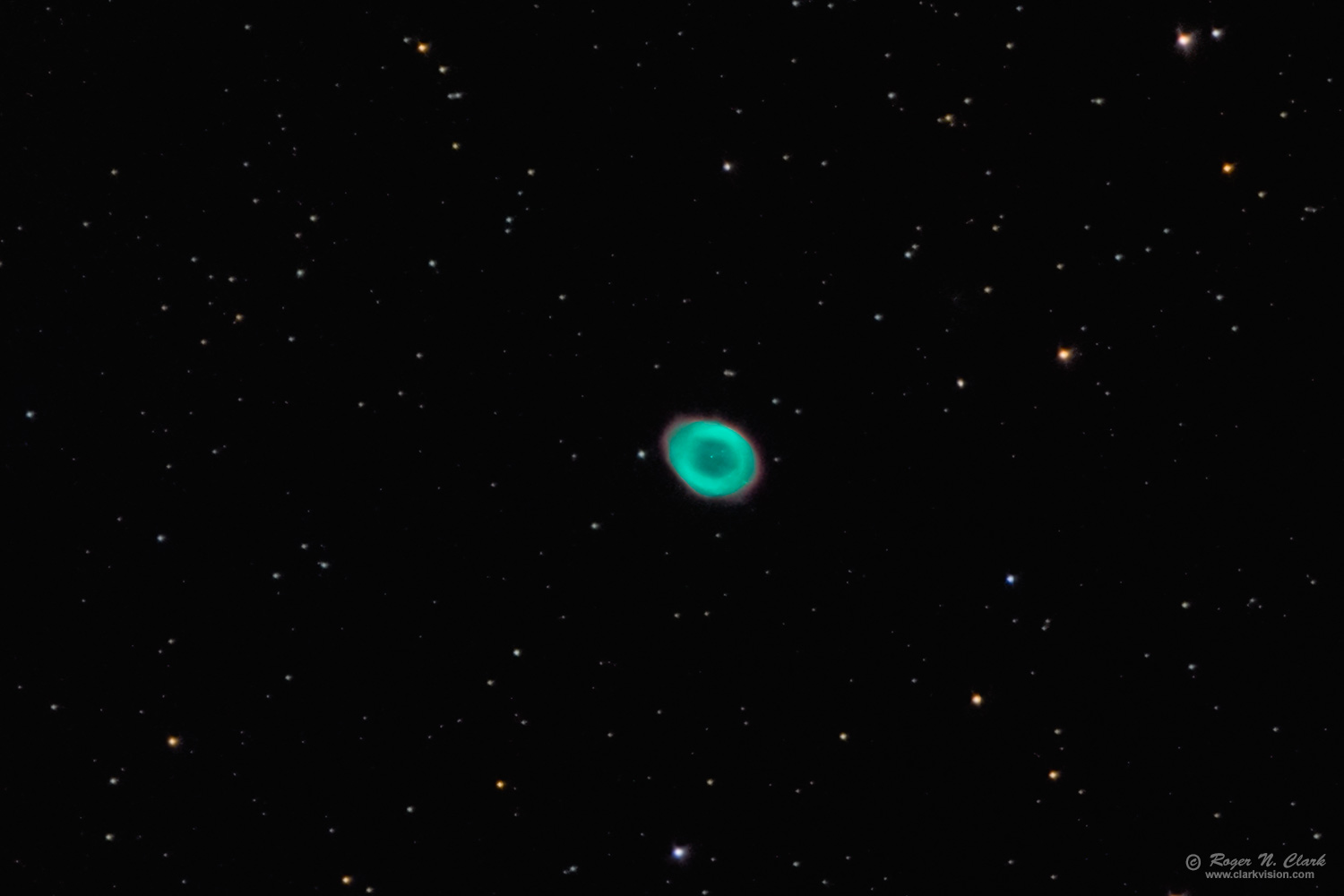| Home | Galleries | Articles | Reviews | Best Gear | New | About | Contact | Gallery Index | Previous |
Next |

| Home | Galleries | Articles | Reviews | Best Gear | New | About | Contact | Gallery Index | Previous |
Next |

The ring nebula gets its name from how it looks in small amateur telescopes: a small smoke ring in space. M57 is a planetary nebula from an ancient star explosion. The green color is from ionized oxygen, and is a common color in planetary nebulae. The green can be seen in large amateur telescopes. Large telescopes, like 12+ inches in aperture show considerable structure visually, similar to that shown here. The red/magenta is from hydrogen emission.
Technical. This image was obtained with a stock Canon EOS 90D DSLR Camera and Canon 300 mm f/2.8 L IS II lens. plus a Canon 2x teleconverter giving 600 mm at f/5.6. Total exposure time was 36.25 minutes with 145 15 seconds exposures, ISO 1600. No filters were used. Post processing: raw conversion with Photoshop ACR stacking with deep sky stacker with 3x drizzle, Stretched with rnc-color-stretch. Star reduction and Richardson-Lucy deconvolution in ImagesPlus. Final adjustments in photoshop. No darks, no flats, no bias frames measured (bias is in the camera EXIF data and a flat field is in the ACR lens profile and corrected during raw conversion). Dark current is suppressed. This is a highly calibrated image with color managed workflow. The exposures were tracked on an iOptron HAE29EC strain-wave mount with high resolution encoders and no guiding. The image was obtained in the Denver metro area, Bortle 7, with the first quarter Moon in the sky.
Original plate scale is 1.1 arc-seconds/pixel and this image is shown at 0.73 arc-second/pixel.
This is a natural color image.
The Exposure Factors, CEF, CEFA are measures of the relative amounts of light received from a subject. It can be used to fairly compare wildly different lens/telescope apertures and exposure times. For this image on the sky:
Modern digital cameras like the Canon 90D include on sensor dark current suppression technology and low fixed pattern noise at ISOs around 800 and higher, making no need for dark frame subtraction. Modern raw converters correct for light fall-off and also correct for hot/dead/stuck pixels. This makes processing low light images easy: simply align and average.
Keywords to this image = astrophoto-1 nebula Messier digital_astro canon_90d rnc-color-stretch NEW
Image ID: m57-600mm-rnclark.c06.25.2023.IMG_5556-703-av145-h-0.5xs.jpg
| Home | Galleries | Articles | Reviews | Best Gear | Science | New | About | Contact |
Last updated November 03, 2025